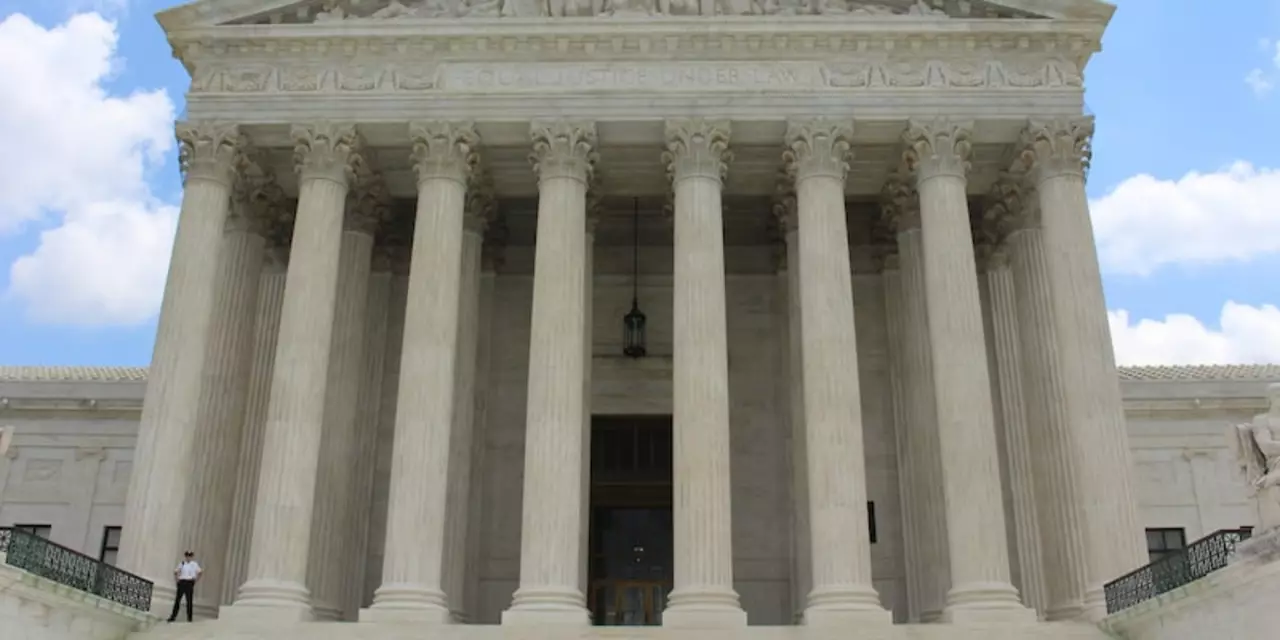The Supreme Court Collegium is an important body in India, responsible for the selection of judges for posts in the High Courts and the Supreme Court. The Collegium is composed of the Chief Justice of India and four other most senior judges of the Supreme Court. The role of the Collegium is to recommend the appointment, transfer and elevation of judges to the High Court and Supreme Court.
The Collegium operates on the basis of the principle of ‘collective responsibility’, a system that allows the five senior-most judges of the Supreme Court to come to a unanimous decision on the appointment of judges. The Collegium has the authority to make recommendations on the judicial appointments, subject to the approval of the President of India.
Recently, the Supreme Court Collegium has recommended the names of 23 advocates and judicial officers for elevation as judges of the High Courts. This decision was taken by the Collegium after a thorough examination of the credentials of the candidates. The list of the 23 recommended by the Collegium includes two women and one Dalit. This is a positive step towards greater inclusivity in the judicial system.
The Collegium system has been in place since 1993, and it has been criticized for its lack of transparency. The Supreme Court Collegium plays a crucial role in the appointment of judges, and it is important that it is able to function in a transparent and accountable manner.
The Supreme Court Collegium has recently released a list of 23 candidates who have been selected for High Court judges' posts. The selection is the first of its kind since the Collegium system was adopted by the Supreme Court in 1993, and it is a major development in the Indian judicial system. The names of the 23 candidates were released on the official website of the Supreme Court.
The names of the 23 candidates who were selected by the Collegium were as follows:
- A.S. Acharya
- A.V. Chandrashekhar
- B.V. Nagarathna
- G.K. Prasad
- J.S. Virk
- K.M. Joseph
- K.S. Radhakrishnan
- K.T.S. Tulsi
- L.N. Rao
- M.M. Kumar
- M.Y. Eqbal
- N.V. Ramana
- R.K. Agrawal
- R.M. Lodha
- R.V. Raveendran
- S.J. Mukhopadhaya
- T.S. Thakur
- U.U. Lalit
- V.G. Palshikar
- V.K. Bali
- V.S. Sirpurkar
- Y.V. Chandrachud
The 23 candidates have been selected for High Court judges' posts from among several hundred applicants. The selection process was rigorous and the Collegium considered the candidates' qualifications, experience and performance in the selection process.
The selection of the 23 candidates is a major step forward in the Indian judicial system and the Supreme Court Collegium has done a commendable job of selecting the right candidates for the posts. It is hoped that the selected candidates will be able to bring about much-needed reforms to the Indian judicial system.
The Supreme Court Collegium is the highest authority in India responsible for selecting judges for the High Courts and Supreme Court of India. It consists of five senior-most judges of the Supreme Court and is headed by the Chief Justice of India. The Collegium's purpose is to ensure that persons of integrity and high legal understanding are appointed to the superior courts of the country.
The Supreme Court Collegium has recently released a list of 23 names for appointment as High Court judges. The selection process for this is quite extensive and rigorous. The Collegium first seeks recommendations from the Chief Justices of the respective High Courts. The Collegium then goes through the list of names proposed by the Chief Justices and selects the most suitable candidates. After the selection process is completed, the Collegium submits its recommendations to the President and the Law Minister.
The Supreme Court Collegium takes into consideration various factors while selecting candiates for High Court posts. These include the individual's legal knowledge, experience, integrity, moral character, ethical standards and professional competence. The Collegium also takes into consideration the diversity of backgrounds among the candidates. This is done to ensure that the judiciary reflects the diversity of the Indian population.
The selection process for High Court judges is a lengthy and detailed one. It is important to ensure that the best and most suitable candidates are selected for these important jobs. The Supreme Court Collegium is responsible for ensuring that only the most qualified and competent individuals are appointed to these posts.
The Supreme Court Collegium has recently released a list of 23 names for appointment to the posts of high court judges. This list is the result of the Supreme Court Collegium's evaluation of candidate's credentials, potential and experience. It is the job of the Collegium to ensure that the best possible people are selected for the posts to ensure the efficient functioning of the judicial system.
While the criteria for selection of judges for high court posts is not public knowledge, it is evident that the Collegium takes into account a variety of factors when making its decision. These include the candidate’s academic qualifications, professional experience, legal expertise, and knowledge of the law. The Collegium also looks into the candidate’s previous judicial experience, if any, as well as any disciplinary action taken against them.
Furthermore, the Collegium also evaluates the candidate’s overall character, integrity and moral standing. It is essential that the chosen candidates be of good moral character, as they will be expected to uphold the law and act as impartial arbiters of justice. The Collegium also takes into consideration the candidate’s past performance in the lower courts, as well as any other distinguishing features that may make them suitable for the post.
It is clear that the Supreme Court Collegium takes a comprehensive and thorough approach to the selection of high court judges. This ensures that only the most suitable and qualified candidates are selected for the posts and that the judicial system is able to function in an efficient and effective manner.
The Supreme Court Collegium's recent list of 23 advocates for appointment to various high court judges' posts has been welcomed by many in the legal community. This selection process, which was established in 1993, has been heralded as a way to ensure that the best lawyers are appointed to the highest courts of the country.
The Supreme Court Collegium consists of the Chief Justice of India and four other senior-most judges of the Supreme Court, who select candidates for the high court judges' posts. The Collegium evaluates the candidates based on their academic and professional qualifications, legal expertise, and experience in the legal profession.
The selection process of the Supreme Court Collegium is seen by many as a more reliable and impartial way of selecting high court judges than the previous system of the executive appointing them. This process is seen as a way to reduce political interference in judicial appointments and ensure that only the most qualified advocates are appointed to the high court.
In addition, the Supreme Court Collegium's selection process is seen as a way to promote diversity in the judiciary. The list of 23 advocates for the high court judges' posts includes four women and three members of the Scheduled Castes and Scheduled Tribes. This is a positive step towards creating a more diverse and representative judiciary, which is essential to ensure justice for all.
The Supreme Court Collegium's selection process for high court judges' posts has been widely praised as a way to ensure that the best and most qualified advocates are appointed to the highest courts of the country. It also ensures that the appointments are made in a more impartial and transparent way, while promoting diversity in the judiciary.





